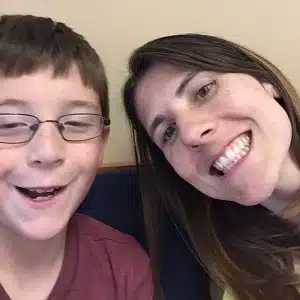I have tried time and again to tell my epilepsy story in a way that would make others understand the full impact of epilepsy on my life and others. I have come to believe that unless you have experienced it yourself, or walked that path as a caregiver, parent, or significant other, it is very hard to comprehend the full impact of this disease.
I don’t even know when my story began. For as long as I can remember, I’d always had what I thought of as “weird feelings” or having a “nightmare while I was awake.” These were the best ways I was able to find to explain them to my parents. These “weird feelings” didn’t happen every day, but they happened occasionally, maybe every few months. I always thought there was just something that made me “different” from everyone else. I know now that “different” has a name. They are complex seizures, partial seizures, and complex-partial seizures.
It is true that, if it’s possible to have epilepsy and still be lucky, I am one of the lucky ones. The brain damage I have suffered from having seizures has been minimal so far. The seizures did not become a recurring, daily part of my life until I was 13 years old.
One Sunday, I returned from a babysitting job sick. I was having these “weird feelings” that I had before, and was running a fever. While these “weird feelings,” were scary and uncomfortable and unpleasant, I had no reason to believe that if I didn’t put up with them for a little while, they would not retreat in the same way the fever and overall influenza had.
Alas, the influenza came and went, and the seizures stayed. I cried as I tried to explain to my mom and dad how bad these “feelings” were. They made me feel scared, and shaky, and bad. My problem was, these seizures could not be seen by everyone the way that convulsive seizures are.
The year was 1989, and my mother took me to the doctor repeatedly trying to get help for these “weird feelings.” My family doctor sent me to neurologists for an answer. Neurologists couldn’t see anything on an EEG so they sent me to a psychologist. The psychologist said their findings were inconclusive. My mother brought me back to the neurologist and said: “Look at her. She can hardly hold her head up. You have to help.” The neurologist did one more EEG and this time, saw many seizures going on in my head.
Although they finally had an answer, this created more questions. I spent many days in the hospital that first year hooked up to an EEG machine. Over the years I have tried 13 different medications, had countless MRIs and EEGs, and spent hours going from doctor to doctor trying to stop the seizures.
The most important thing I think people with no history of this disease don’t realize is that there are so many of us who do not get complete seizure relief through medication.
Statistically speaking, if you have 100 people with epilepsy in a room, 33 of them will still have seizures, even though they are on medication. I am one of those 33 people.
15 years after that day I came home sick from a babysitting job, I was being prepped for brain surgery. My left temporal lobectomy was 8 weeks of pain I hope I’ll never have to experience again, but after recovery, it seemed that the pain had been worth it.
For the next 18 months, I was seizure free, and I was medication-free about 12 months of that time. I was able to get pregnant and have a beautiful baby boy without being on any seizure medication.
But, shortly before my baby was born, the seizures returned. This time, if you put 100 people who have had a temporal lobectomy in a room, 10-15 of them will have not had their seizures eliminated or severely reduced. I would also be one of those 10-15.
Two years later, I had a VNS (Vagus Nerve Stimulator) implanted.
From Wikipedia: “Vagus nerve stimulation or vagal nerve stimulation (VNS) is a medical treatment that involves delivering electrical impulses to the vagus nerve. It is used as an adjunctive treatment for certain types of intractable epilepsy.”
This seems to help about 50 out of 100 people, but, again, I was not one of the 50 it helped.
The VNS was eight years ago, and I’m trying to stay positive that a cure for this disease will be developed in my lifetime. Even if the medications did fully work, they are never free of side effects. It’s no fun to be tired and fatigued every day, to have stomach aches, or to have your entire week ruined because you forgot to take your pills one morning.
My dream is that a cure for epilepsy will be found before my time on earth is over.





